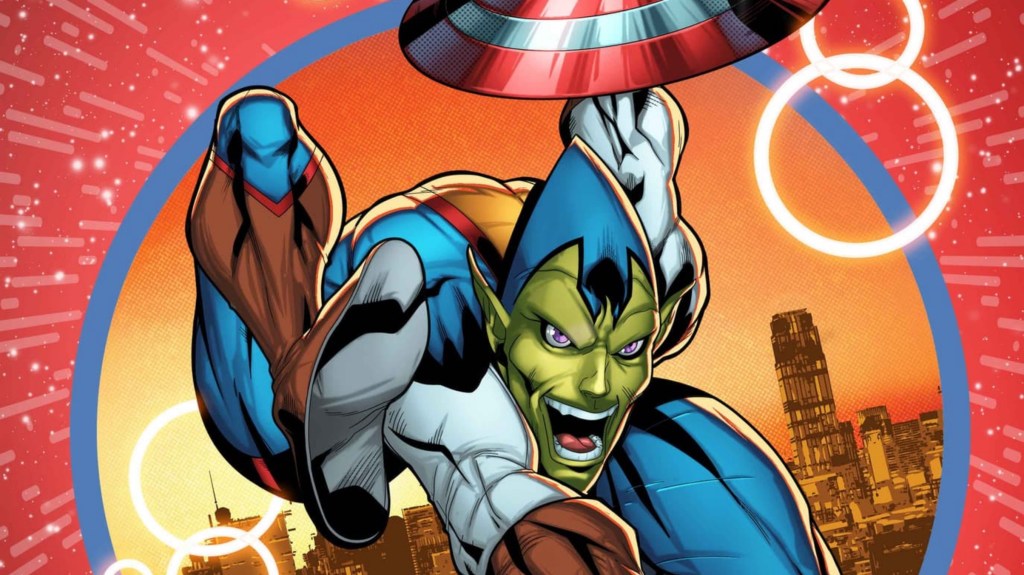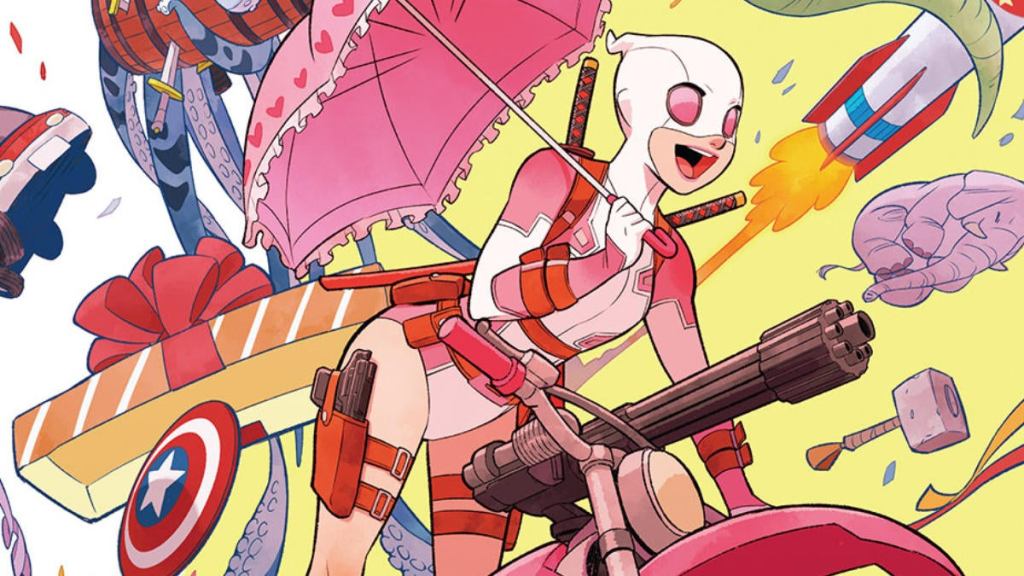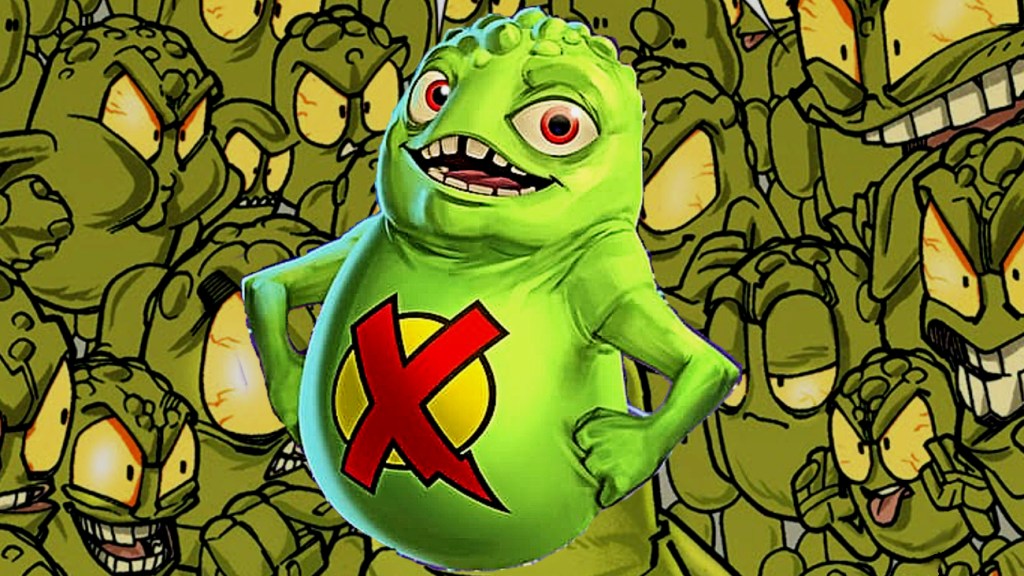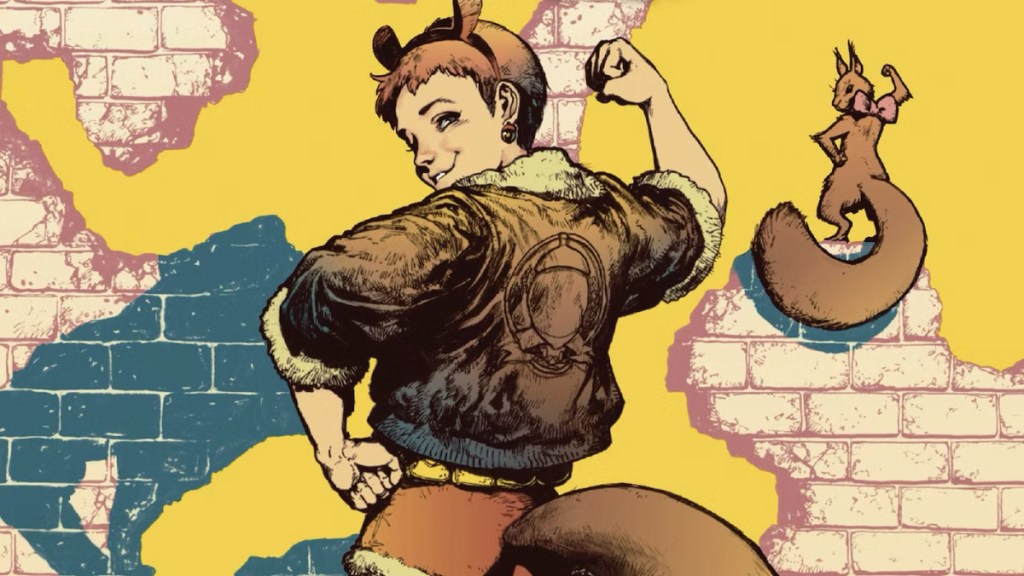Once upon a time, a comic book didn’t need to be dark, grim, or gritty to be successful. Comic books — evolving from newspaper comic strips — were often referred to as “funny books” or “the funnies.” As these names suggest, early comics typically featured lighthearted, humorous content that aimed to make readers laugh. Even with the rise of superhero comic books, particularly those from Marvel Comics, publishers continued to blend humor with more serious, real-world themes that are central to the superhero genre. Indeed, the humor of earlier eras became a hallmark of Marvel comic books, which helped popularize the sarcastic, wisecracking, snarky superhero as a cultural icon.
Videos by ComicBook.com
Even more than just having heroes who are funny, Marvel celebrates its humorous side and funny book roots with characters who are, in themselves, gags or characters initially created as a joke or a parody. For some of these characters, rather than fading into obscurity after the joke is over, they became so popular with fans or important to the plot that they ultimately found mainstream and enduring success. Below is our list of the seven most famous joke characters who impressed creators and fans so much that they overcame their gag origins to become legitimate — albeit funny — members of the mighty Marvel pantheon.
7) Stan Lee

Stan “the Man” Lee — the longtime Marvel editor who helped transform the comic book publisher from an upstart into the global entertainment titan it is today — was a real person who also made himself a joke character in the Marvel Comics Universe. True to the role of a joke character, Lee’s appearances were satirical and intentionally over-the-top. For instance, in Fantastic Four (1963) #10, he and Jack Kirby inserted themselves into the narrative by playing their real-life roles as Marvel editor and artist who get blackmailed by Doctor Doom into playing an in-comic trick on Reed Richards.
The appearance marked one of the first in a long line of Stan Lee cameos. Indeed, while Kirby eventually stepped back from such self-referential appearances, Lee became a recurring guest star in Marvel comics over the years and later a near-regular in the Marvel Cinematic Universe (MCU). Even posthumously, Lee’s legacy endures through his continued presence in the Marvel Universe, ensuring his unique brand of humor and satire remains a cornerstone of comic book culture.
6) Forbush Man

One of the special elements of Marvel’s humor is its love for poking fun at its own tropes and acknowledging some of its more ridiculous aspects. No joke character has pulled this off with more “sizzle and awe” than Forbush Man. He started as Irving Forbush, an imaginary low-level employee at Marvel Comics whom Stan Lee would mention in his “Bullpen Bulletins” whenever he needed a straw man. Forbush Man eventually became a real character in the Marvel Comics Universe in Not Brand Echh, Marvel’s own Mad Magazine-like publication used to parody its own superheroes.
Forbush Man could be described as Marvel’s “Minister of Self-Mockery”—from his name to his appearance, the absurd situations he stumbled into, and the relentless puns, everything about him satirized Marvel superhero tropes. He carried out this role with aplomb as the unofficial mascot of Not Brand Ecch. For example, in Not Brand Ecch #8, Forbush Man gets caught in a battle between the Revengers (featuring Black Panther and the Wisp) and Dang! The Conqueror. This quirky appearance is just one example of how Forbush Man has consistently brought comedic relief to Marvel’s pages. Even after Not Brand Ecch’s original run ended, Forbush Man endured as Marvel’s self-aware comic relief, periodically popping up in stories to deliver his signature brand of levity.
5) Impossible Man

The Impossible Man is Marvel’s answer to DC Comics’ chaos crusader, Mr. Mxyzptlk. Stan Lee and Jack Kirby clearly didn’t intend for him to be a serious character when they introduced him in Fantastic Four (1963) #11. Instead, he served as a form of comic relief, arriving on Earth with tremendous power but using it not for good or evil, but simply to cause mischief and chaos out of sheer boredom and, like a child, to get attention.
In a series that often tackled intense issues like alienation, identity, and the responsibilities of having superpowers, the Impossible Man brought a much-needed dose of levity. Fans appreciated his antics, and his unpredictability gave creators storytelling flexibility. As a result, he became more than just a one-time gag. Rather, he evolved into a long-standing Marvel jester who can pop into any story for a bit of fun at any time.
4) Gwenpool

Gwendolyn Poole, aka Gwenpool, is probably the Marvel joke character with the most unusual origin of all. While most joke characters — despite being gags — are created with some purpose, whether to critique, satirize, or parody a person, idea, or concept, Gwenpool was created for none of those reasons. Instead, she originated simply as a variant art form of Ghost Spider, blending her with elements of Deadpool.
However, this variant became so popular with fans that Marvel decided to elevate her status from a variant cover image to an actual joke character: an “In Real Life” Marvel fan who gets sucked into the Marvel Universe and uses her deep knowledge of Marvel lore to navigate both dangerous and absurd situations. Thanks to continued fan interest, her early appearances eventually led to her own solo series. To be sure, for a character who started out as a “cover model,” Gwenpool has now evolved into a fully realized character — albeit one whose entire vibe remains a gag, even if she’s no longer just the punchline.
3) Doop

Doop was created by Peter Milligan and Michael Allred as part of their vision to reimagine X-Force as a satirical commentary on superhero tropes, particularly those surrounding mutants. Rather than being a traditional Marvel Universe character, Doop was designed to parody the “dark and grim” superhero archetypes prevalent at the turn of the century. His origin deliberately defied convention, with various narratives portraying him as a U.S. government creation, a writer’s imaginary construct, or even a citizen from a pocket dimension.
Doop’s absurdist design — resembling a green jelly bean — further underscores the character’s satirical essence. Ironically, despite the creators’ intent to critique superhero conventions, Doop became so popular that he has since evolved into a significant figure within the mutant community, including working with Wolverine as a teacher and serving as the undercover protector of the Jean Grey Institute for Higher Learning. Indeed, if any character defines the journey from joke to juggernaut, it’s Doop.
2) Squirrel Girl

Doreen Green, aka Squirrel Girl, is the embodiment of a Marvel comic book joke character. According to Squirrel Girl’s creator Will Murray, who stated in an interview with Fast Company, that he purposefully designed her to facilitate “lighthearted” superhero stories that contrasted with the darker, more serious comics that have dominated the industry since the 1980s.
In her debut, Squirrel Girl outsmarts Iron Man, leaving even Tony Stark bewildered to have been taken out in such a “squirrelly” fashion. Given her memorable entrance into the Marvel Universe, it’s no surprise she quickly gained a following among comic book fans and beyond. Since then, Squirrel Girl has come full circle to become a beloved character, even securing a spot on the Avengers. Outside of Iron Man, she’s gone on to defeat formidable foes like Doctor Doom, Wolverine, Deadpool, and Thanos.
1) Howard the Duck

One of Marvel’s earliest joke characters, Howard the Duck — who debuted in Adventure into Fear #19 — was born at a time ripe for satire. The early 1970s were filled with cultural flashpoints, from Watergate and the Vietnam War to the comic book industry’s transition from the Silver Age to the more socially conscious Bronze Age. What better way to comment on it all than through a hard-drinking, cigar-smoking anthropomorphic duck?
From the outset, it was clear that Howard was never intended to be a traditional superhero. Instead, he served as a vehicle for creator Steve Gerber’s sharp critiques of modern society and comic book culture. Despite — or perhaps because of — his offbeat persona and outsider status, Howard has cultivated one of the most devoted cult followings in Marvel history. Since his debut, Howard has gone on to star in more than a few of Marvel’s strangest and most subversive stories.








